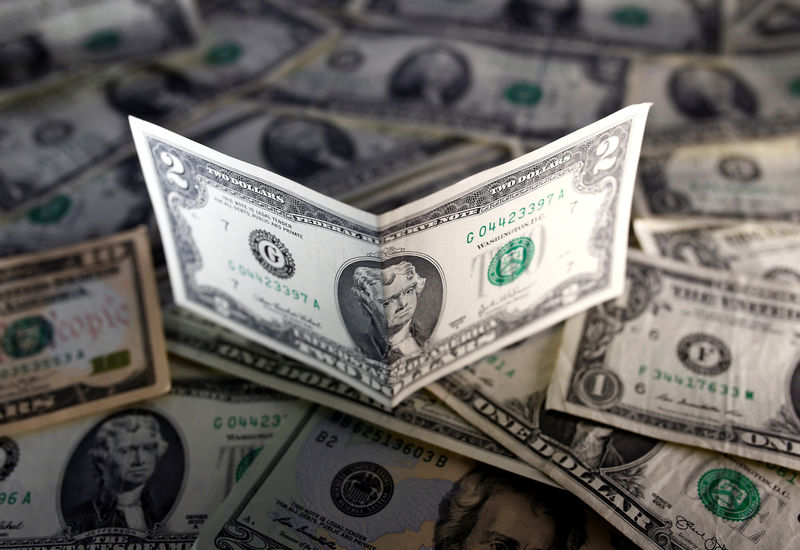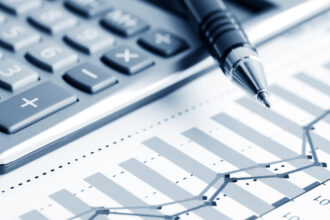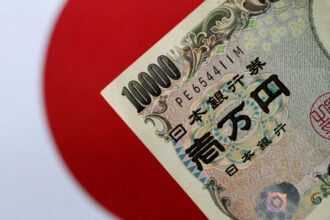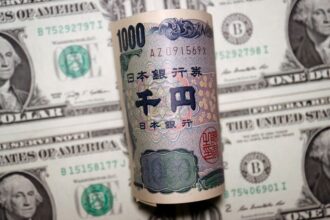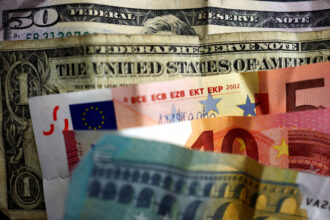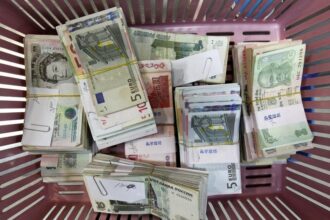Investing.com – The U.S. dollar slipped to a two-month low in early European hours Tuesday on growing expectations that the U.S. Federal Reserve is nearing the end of its tightening cycle, while sterling hit a fresh 15-month high as wages continue to grow.
At 02:55 ET (06:55 GMT), the , which tracks the greenback against a basket of six other currencies, traded 0.2% lower to 101.405, falling to levels last seen in mid-May.
End of Fed tightening cycle in sight
The dollar has weakened after several Fed officials said on Monday that while the central bank will still likely need to raise interest rates further to bring down still-high inflation, the end to its current monetary policy tightening cycle is getting close.
An interest rate hike of 25 basis points later this month is largely priced in, and attention is now firmly on Wednesday’s release for June, which is expected to show the index rising at the slowest annual increase since March 2021.
A strong inflation number could lead to another hike being priced in for later in the year, leading to more dollar gains, but it appears an end is in sight for the Fed’s more than year-long series of interest rate increases.
Sterling soars as average earnings increase
rose 0.4% to 1.2905, soaring after the latest U.K. employment data showed that rose at a record 7.3% in June, putting pressure on the Bank of England to continue tightening interest rates with already at the highest levels in the G7.
rose 0.2% to 1.1018, rising to a two-month peak, after rose in June, climbing to 6.4% from 6.1% the prior month, interrupting a steady decline since the start of the year.
Asian currencies rise
fell 0.4% to 140.75, with the yen moving further away from a recent seven-month low as U.S. Treasury yields retreated sharply.
fell 0.5% to 7.1983, with the yuan climbing to a two-week high on Tuesday, benefiting from a strong daily midpoint fix by the People’s Bank of China.
rose 0.2% to 0.6691, with the Australian dollar benefiting from data showing an improvement in .
Read the full article here


